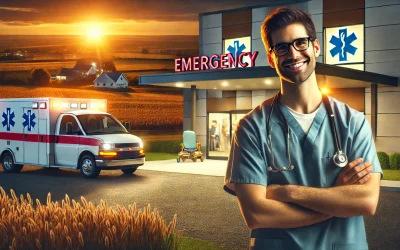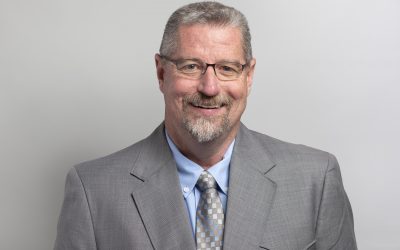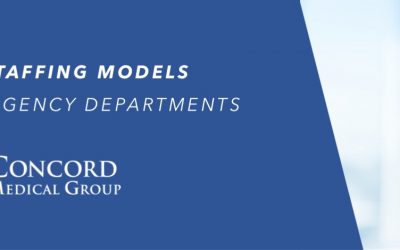Given the enormous responsibilities and high stress experienced by emergency department (ED) physicians, and the impact of those factors on patient well-being, keeping these physicians healthy and alert must be an absolute top priority for everyone involved. In an article entitled “Special Report: Surviving the Struggle: Nights in the ED”, written by Gina Shaw, she states that “Emergency medicine ranks at or near the top of nearly every survey on physician burnout.”
While hospitals and medical companies have their own strategies for maintaining physician health, the focus of this article is on methods the doctors themselves can implement to preserve their fitness, both at home and while on shift. Ten of those are enumerated here.
AT HOME
On the Day of the Night Shift, Take it Easy.
Don’t overload yourself with tasks before your night shift like carting your children places, balancing your checkbook, or putting in that new driveway. These activities involve physical and/or mental fatigue and that fatigue accumulates. The consequence of that overloading is reduced efficiency.
After Your Shift, Go Straight Home.
When your shift is over, what you need is sleep. You do not need to be jamming your schedule with activities after your night shift. Also, try wearing dark sunglasses coming home from work to reduce the effect of psychological “wake up” impulses from the sun.
Try Counting the Steps.
In an article “Counting every step you take”, it states “Official exercise guidelines say adults should get two-and-a-half-hours of moderate-intensity exercise a week”. One effective method of overcoming your inertia is using a pedometer when you walk. Pedometers have the psychological advantage of quantifying your exercise. Tips on pedometers include:
- 10,000 steps a day (nearly five miles) is an effective goal
- To get health benefits from walking, maintain an energetic pace of 3 mph
- A good pedometer can be purchased for $25
- Piezoelectric pedometers that work at any angle cost more but can be more accurate
Prepare Healthy Meals at Home for Work.
Rather than buying pizza or cheeseburgers at work, consider following these guidelines for preparing meals. Include in your diet:
- Low-calorie and low-fat foods
- Fruits and vegetables
- Milk, fruit or vegetable juice, water, unsweetened ice tea, rather than soft drinks
- Coffee with reduced-fat or nonfat milk
Avoid Caffeine, Alcohol, and Heavy Food after Work.
Imbibing these will keep you up. Likewise, these foods will impair your sleep:
- Dark chocolate
- Steak
- Spicy food
- Broccoli and cauliflower
- French fries
- Chili
When you are in Bed after Work.
Use eye masks, blackout shades, and earplugs to keep your bedroom dark and quiet, so that you can get quality sleep. To help mask those barking dogs and honking car horns, you might also consider buying a “white noise machine”. These devices produce random sound, like a rushing waterfall, ocean waves, or wind blowing through trees, to aid you in getting to sleep. For maximum efficiency with these devices, set the volume at slightly higher than normal music listening levels.
DURING YOUR SHIFT
Use a Food Delivery Service.
If you can find a food delivery service that will service your work facility, and the food is healthy, use that alternative to vending machines and fast food. The operative words are ‘healthy food’.
Exercise.
More valuable than catnaps at work which can make you bleary, when you have a spare moment, take an exercise break. Jumping jacks, push-ups, and other routines will elevate your heart rate and leave you with increased alertness.
Do Not Lower the Lights.
With the night shift, there is a tendency to dim the lights in the hospital. However, according to Dr. Mallemat, “the ED knows no hours. You need the same level of care no matter what time it is, so you should have the big bright lights on.”
Keep the Noise Level Normal.
Although there is certainly a downside to noise levels being too high, in the ED, just as with light levels, the noise level should be kept at a standard level. Too low of light and noise levels in the ED can have an undesirable lulling effect.
CONCORD MEDICAL GROUP
Fully aware of the ill effects of physician fatigue to both physician and patient, Concord Medical Group (CMG) is an organization owned and operated by physicians. Since Dr. Kyle Sheets established Concord in 2001, we have built our reputation on strategically placing quality medical providers in hospital EDs. With over 15 years of experience, 350 physicians, and 50 midlevels, we are confident that Concord has the resources to help hospitals be the leading patient care facility in their area, while also providing physicians the ability to confidently choose their schedules.
Committed to physician and patient health, and hospital efficiency, CMG continues its highly productive and unique approach to linking the most qualified physicians to the emergency departments.
More Posts
Empowering the Rural ED: Unlock Excellence in Your Emergency Department
Managing a rural ED is a complex challenge that requires strategy, innovation, and a relentless focus on both people and outcomes. For hospital executives and clinical leaders, success hinges on the ability to balance high-quality care, operational efficiency, and staff satisfaction. Here are some essential strategies to help you unlock excellence in your ED.
Concord Announces Dr. John Jones as Chief Medical Officer of Emergency Medicine
Concord Medical Group is extremely excited to announce that John Jones, MD has accepted the role of Chief Medical Officer of Emergency Medicine.
Creative Staffing Models for Rural Emergency Departments
Staffing an emergency department with the right providers is essential to deliver high quality care and keep costs under control. We have found that creative and custom staffing models are essential to driving care quality and boosting financial health in rural, low-volume emergency departments.






